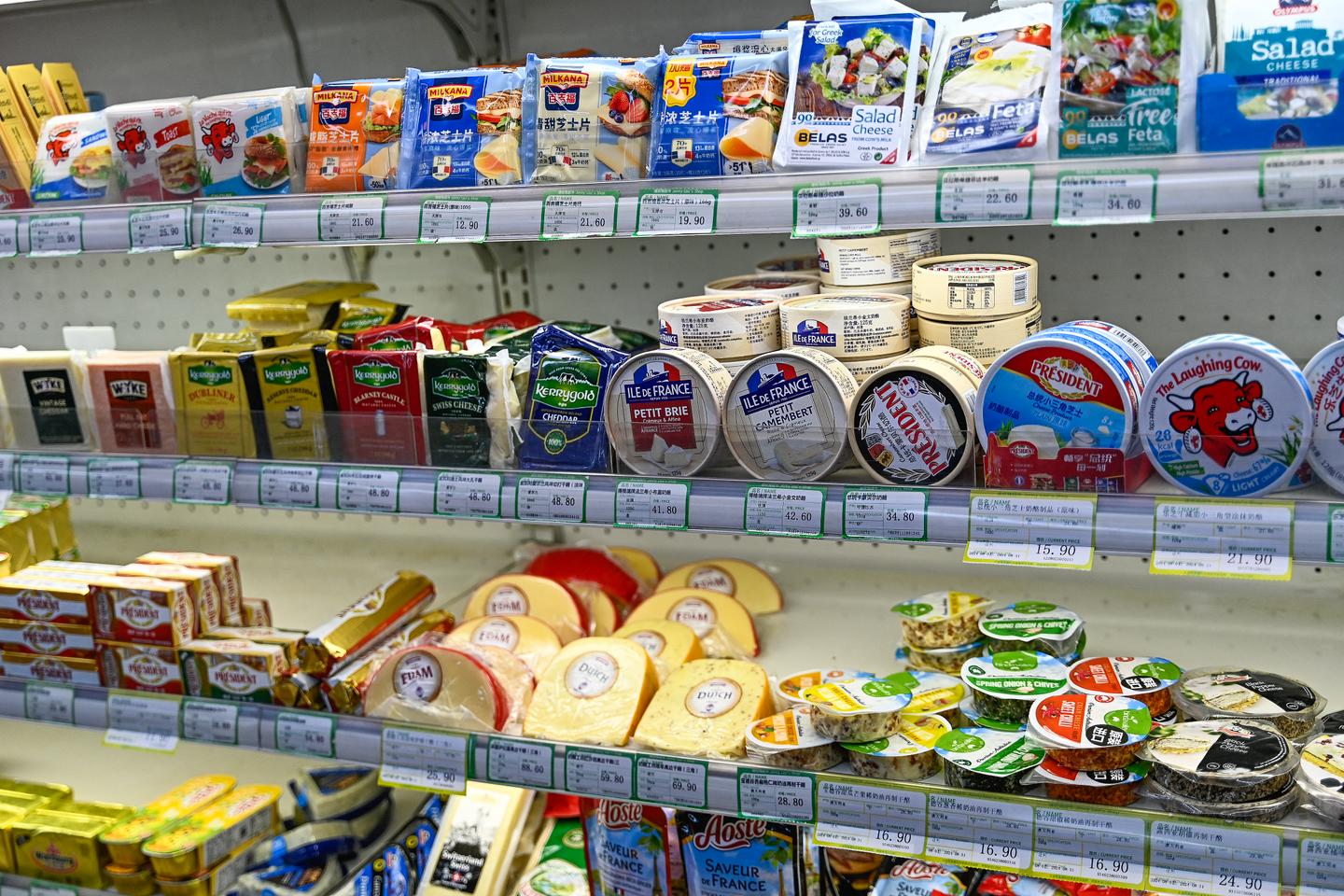


China is stepping up the pressure on Europe's agri-food industry. The former Middle Kingdom has been increasingly quick to launch retaliatory operations against a sector of strategic importance to the 27 member states of the European Union (EU). On Wednesday, August 21 China's Ministry of Commerce announced the opening of an anti-dumping investigation into certain dairy products imported from the EU. The decision comes a day after Brussels confirmed a significant tax increase on Chinese electric vehicles.
Amid growing trade tensions between the Asian power and the Old Continent, Brussels has decided to tackle prices deemed artificially low for electric vehicles manufactured on Chinese territory, due to state subsidies. On Tuesday, the European Commission validated the principle of imposing a surtax on imported cars for five years, while slightly readjusting the scales downward with a maximum rate set at 36.3%.
Faced with this new stage in the European procedure, the Chinese counterattack came quickly, as the threat had been made. This time, European dairy products have their turn in the crosshairs. According to the Ministry of Commerce, the anti-dumping investigation concerns fresh cheese, curdled milk, blue cheese and certain milk and cream. The procedure is due to last one year with a possible six-month extension. In the end, China may decide to impose surtaxes on these products to protect its market if it demonstrates that EU practices are unfair and detrimental to competition.
In 2023, EU member states exported €1.7 billion worth of dairy products to China, according to data published by Eurostat. Europe therefore ranks second behind New Zealand. The Chinese Ministry of Commerce says it is prepared to examine subsidy systems throughout the EU, particularly in Austria, Belgium, Croatia, the Czech Republic, Finland, Italy, Ireland and Romania. Among the countries cited, Ireland – the biggest exporter of dairy products to China, totaling over €410 million in 2023 – seems the most vulnerable.
'The pressure is mounting on Europe'
Just two months ago, China opened another front against Europe, launching an anti-dumping investigation into European pork shipments. In the firing line were fresh or frozen pork cuts and certain salted or smoked products, as well as offal – that is, parts of the pig that are rarely consumed in Europe but find a very valuable outlet in China. The threat brandished by the Chinese government was to introduce prohibitive customs duties that would restrict their marketing on the territory, knowing that China imported $6 billion (around €5.6 billion) worth of pork in 2023, half of it from the EU.
You have 30.6% of this article left to read. The rest is for subscribers only.
